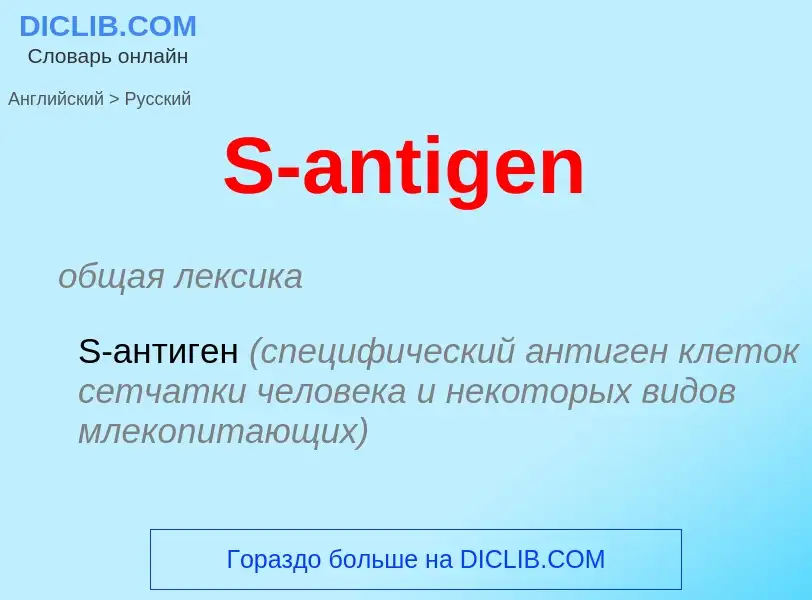Traduction et analyse de mots par intelligence artificielle ChatGPT
Sur cette page, vous pouvez obtenir une analyse détaillée d'un mot ou d'une phrase, réalisée à l'aide de la meilleure technologie d'intelligence artificielle à ce jour:
- comment le mot est utilisé
- fréquence d'utilisation
- il est utilisé plus souvent dans le discours oral ou écrit
- options de traduction de mots
- exemples d'utilisation (plusieurs phrases avec traduction)
- étymologie
S-antigen - traduction vers Anglais
общая лексика
S-антиген (специфический антиген клеток сетчатки человека и некоторых видов млекопитающих)
['æntidʒən]
общая лексика
антиген
существительное
физиология
антиген
Définition
Wikipédia
In immunology, an antigen (Ag) is any molecule, molecular structure, foreign particulate matter, or pollen grain that can bind to a specific antibody or T-cell receptor. The presence of antigens in the body may trigger an immune response. Antigens can be proteins, peptides (amino acid chains), polysaccharides (chains of simple sugars), lipids, or nucleic acids.
Antigens are recognized by antigen receptors, including antibodies and T-cell receptors. Diverse antigen receptors are made by cells of the immune system so that each cell has a specificity for a single antigen. Upon exposure to an antigen, only the lymphocytes that recognize that antigen are activated and expanded, a process known as clonal selection. In most cases, an antibody can only react to and bind one specific antigen; in some instances, however, antibodies may cross-react and bind more than one antigen. The term antigen originally referred to a substance that is an antibody generator.
The antigen may originate from within the body ("self-protein") or from the external environment ("non-self"). The immune system identifies and attacks "non-self" external antigens and usually does not react to self-protein due to negative selection of T cells in the thymus and B cells in the bone marrow.
Vaccines are examples of antigens in an immunogenic form, which are intentionally administered to a recipient to induce the memory function of the adaptive immune system towards antigens of the pathogen invading that recipient. The vaccine for seasonal influenza is a common example.

